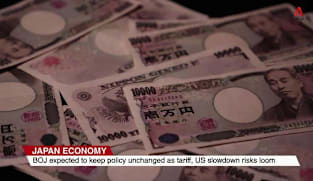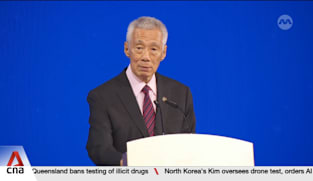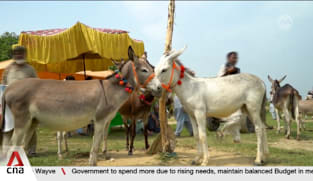Louis Ng on Good Samaritan Food Donation Bill
Singapore has an “astounding” food waste problem. An average of 750,000 tonnes of food waste was generated every year over the past five years. That is against 1.6 million tonnes of commonly consumed food imported annually. Food waste makes up 11 per cent of total waste in Singapore, contributing significantly to strain on the country’s waste disposal system. With climate change in mind, wasting food also wastes all the energy and water it takes to produce the food. Meanwhile, ensuring that more food is donated rather than wasted will help to increase its availability for redistribution to the needy. MP Louis Ng made all these points in Parliament on Tuesday (Aug 6) when he moved the Good Samaritan Food Donation Bill for second reading. Mr Ng said studies have shown that a lack of liability protection for donors means that businesses prefer throwing away instead of donating food, and that a Good Samaritan food donation law would address this concern. It is a step already taken by many other countries, he said. Mr Ng explained how it will work. If a food donor - business, charity or individual - has taken all steps to ensure that donated food is safe, they will be protected from civil or criminal liability in the event of death or personal injury resulting from consuming the food. Before a donor can enjoy a waiver of liability, four conditions will have to be met, which are already best practices that many food donors are already following, said Mr Ng. The conditions are as follows - first, the food must not be unsafe or unsuitable at the time it was donated; second, the donor must inform the recipient of any particular requirements for handling the food to ensure it remains safe to consume; third, the donor must inform the recipient of any time limit within which the food remains safe; fourth, the donor must take all reasonable measures to comply with food safety and hygiene requirements up to the point of donation.
Singapore has an “astounding” food waste problem. An average of 750,000 tonnes of food waste was generated every year over the past five years. That is against 1.6 million tonnes of commonly consumed food imported annually. Food waste makes up 11 per cent of total waste in Singapore, contributing significantly to strain on the country’s waste disposal system. With climate change in mind, wasting food also wastes all the energy and water it takes to produce the food. Meanwhile, ensuring that more food is donated rather than wasted will help to increase its availability for redistribution to the needy. MP Louis Ng made all these points in Parliament on Tuesday (Aug 6) when he moved the Good Samaritan Food Donation Bill for second reading. Mr Ng said studies have shown that a lack of liability protection for donors means that businesses prefer throwing away instead of donating food, and that a Good Samaritan food donation law would address this concern. It is a step already taken by many other countries, he said. Mr Ng explained how it will work. If a food donor - business, charity or individual - has taken all steps to ensure that donated food is safe, they will be protected from civil or criminal liability in the event of death or personal injury resulting from consuming the food. Before a donor can enjoy a waiver of liability, four conditions will have to be met, which are already best practices that many food donors are already following, said Mr Ng. The conditions are as follows - first, the food must not be unsafe or unsuitable at the time it was donated; second, the donor must inform the recipient of any particular requirements for handling the food to ensure it remains safe to consume; third, the donor must inform the recipient of any time limit within which the food remains safe; fourth, the donor must take all reasonable measures to comply with food safety and hygiene requirements up to the point of donation.



















